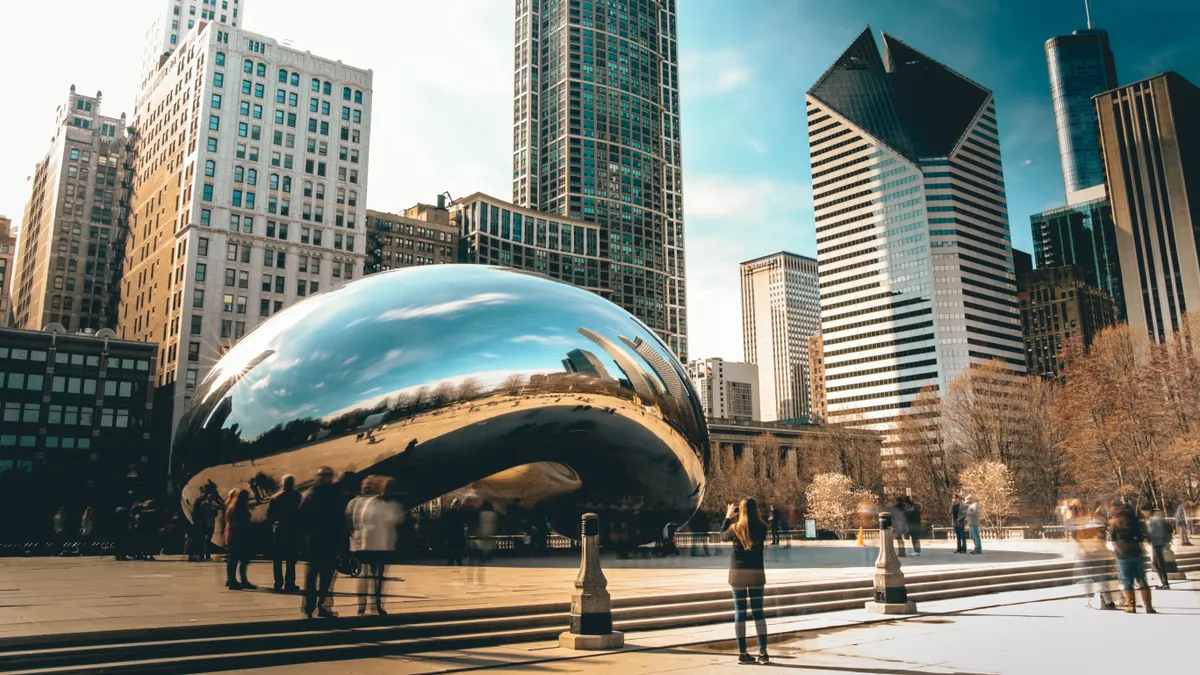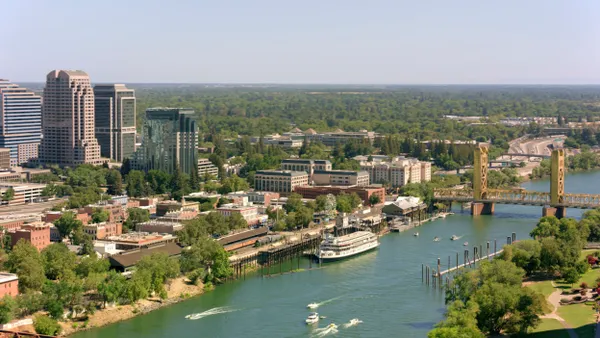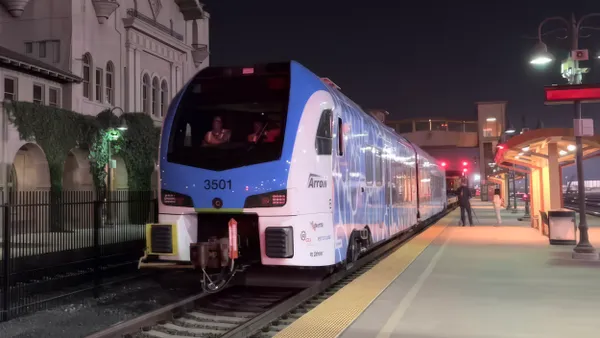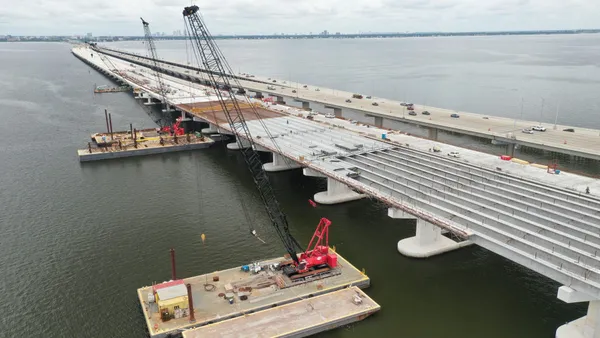UPDATED, Nov. 27, 2019: Chicago City Council approved on Tuesday a congestion tax on ride-hailing vehicles in the city.
The city currently has a 72-cent tax on all Uber and Lyft trips. Under the new plan, taxes on single-passenger trips will be raised to $1.25, while shared rides will only be taxed 65 cents. New surcharges will also be imposed on weekday rides in downtown.
The plan is projected to raise $40 million annually.
Dive Brief:
- Chicago Mayor Lori Lightfoot last week proposed a congestion tax on ride-hailing companies that would add a so-called "downtown zone surcharge" of $1.75 per trip for single rides and 60 cents per trip for shared rides on weekdays.
- The plan comes with the city saying that ride-hailing use in Chicago has grown by 271% and "continues to steadily increase." An analysis of ride-hailing trips since 2015 found that downtown has the most congestion from ride-hailing compared to other areas of the city. The study found that nearly half of all citywide ride-hailing trips begin or end downtown, and one out of every three of those trips both start and end in the area. Most of those trips are by a single rider.
- City officials said the new pricing model is expected to raise $40 million in new revenues, of which a portion will be allocated to improve Chicago Transit Authority (CTA) bus operations. The funds will also go towards a study on long-term efforts to ease congestion.
Dive Insight:
This proposal from Lightfoot, which comes with the backing of a slew of local transportation advocacy groups, is hot on the heels of a letter urging her to back congestion pricing in the city, something that could be a long-term result of the study accompanying this surcharge. Meanwhile, early last year the city launched a $33 million transportation safety initiative to bolster CTA rail stations, so there is clearly a great desire among city leaders to boost transit and give people alternatives to driving.
This would not be the first time a city has upped taxes on Uber and Lyft rides. In June 2018, Washington, DC approved a 5% tax hike on ride-hailing services, a plan projected to raise $23 million to help pay for costs associated with its Metro system of buses and trains.
As with that plan, the companies have expressed their opposition to any new charges. In a statement to the Chicago Sun-Times, Uber said the surcharge would raise prices by nearly 80% on the South and West Sides of the city and more than triple taxes and fees downtown. "The Mayor's proposal... will take money out of the pockets of riders, who rely on apps to get around, and of drivers — half of whom live in the south and west sides of the city," Uber's statement said.
Ride-hailing has been blamed for increasing congestion in cities, with a study published in Science Advances in May finding ride-hailing is "the biggest contributor to growing traffic congestion in San Francisco." But a study by transportation consultancy Fehr & Peers that was jointly commissioned by Uber and Lyft found that only around 3% of total vehicle miles traveled in cities comes from ride-hailing.
As Chicago considers how to simultaneously reduce congestion and make improvements to its transit system, a tax on ride-hailing could be an effective revenue-raiser, although it will be incumbent on city leaders to ensure it is done in an equitable way.











